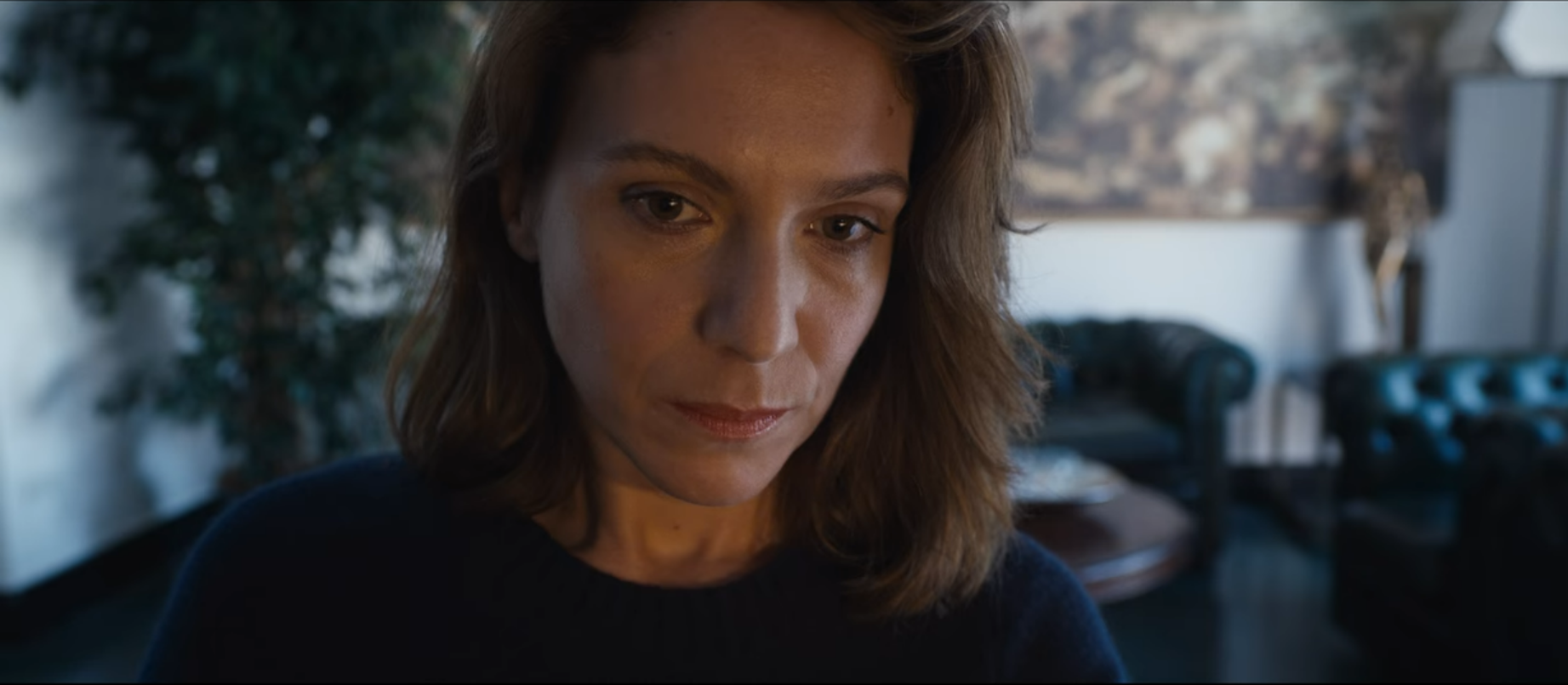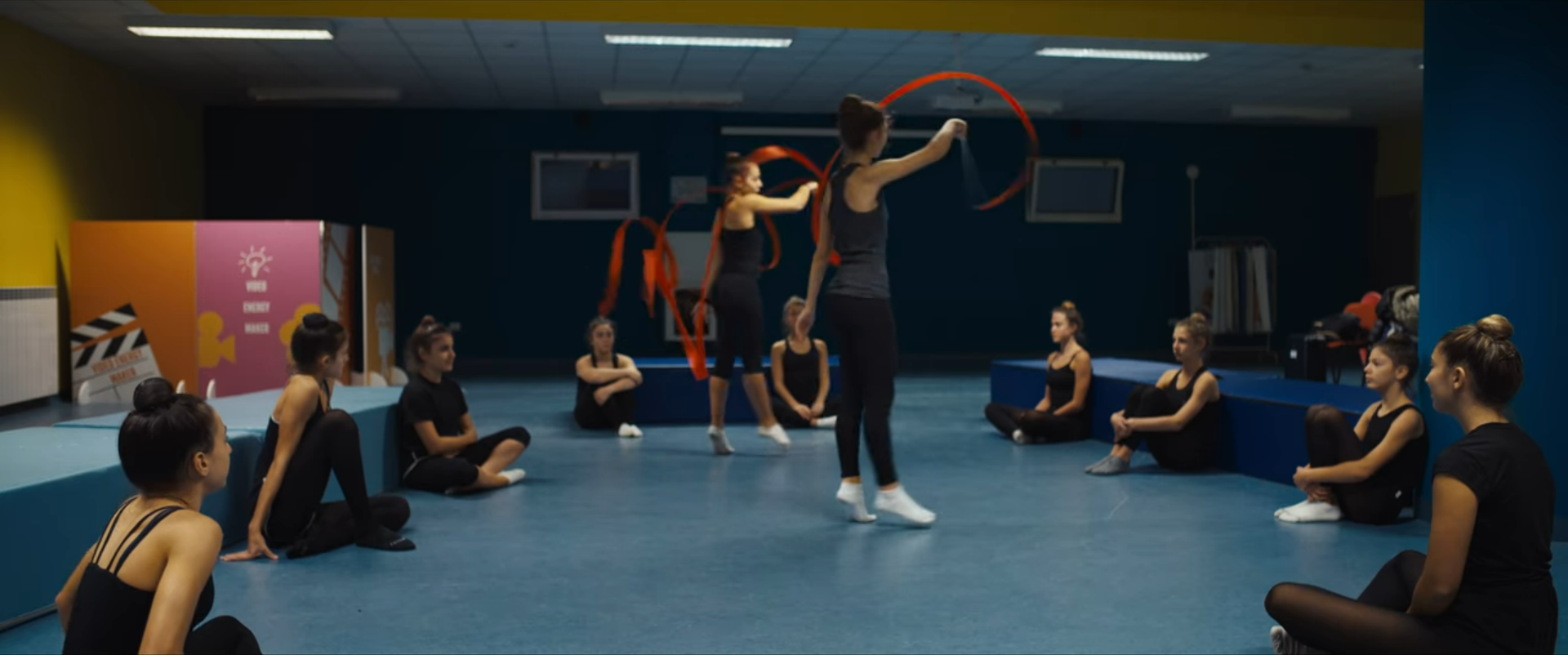Joyfully Chaotic, 'Why Don't You Play in Hell?' is a Must-See
If you enjoy Japanese cinema, absurdly violent action films, gangster flicks, or joyfully strange cinema, 'Why Don’t You Play in Hell?' is a must-see.
Incluvie Foundation Gala - Learn More


Yara (2021) is a nonfiction crime movie about the disappearance and murder of 13-year-old Yara Gambirasio. The film follows magistrate Letizia Ruggeri’s long search to find her killer, taking us through the procedural twists and turns of the case and ending with the capture and conviction of Massimo Bossetti.
Based on a true story, Yara (2021) has the benefit of a ready-made audience of those who followed the investigation in the press and who will want a glimpse into the specifics of how the crime was solved. But turning true events into a narrative can be challenging. There’s a desire to tell the whole story without omitting any details, and this can bog the movie down in unnecessary particulars. Unfortunately, Yara (2021) lacks focus: in its attempt to tell the whole story, it struggles to tell a consistently engaging story.
Films about solving crimes tend to fall into two camps: focusing mainly on the investigative process or focusing more on the investigators themselves. By trying to do both in a 96-minute runtime, Yara struggles to do either story justice.
An excellent film that focuses on the investigative process is ironically one that doesn’t deal with crime at all (at least in any traditional sense). 2016’s Shin Godzilla shows how government officials work behind the scenes to stop a giant monster from terrorizing Japan. Government minutia is tough to make interesting, but with its quick pace and driving momentum, Shin Godzilla proves that films about the inner workings of methodical and flawed government officials can be gripping (of course, the horrific destruction wrought by a giant terrifying lizard helps too). Yara (2021) has two distinct disadvantages. One, unlike the strangely beautiful destruction of Shin Godzilla, the crime is horrible and sad. And two, while Shin Godzilla takes place over the course of weeks, the murder of Yara Gambirasio took years to investigate and prosecute, which means the movie is inevitably filled with lulls in the action and dull moments. Real life government investigations are often boring, and when a film is based on a true story, the writers can’t invent more intriguing elements or alter the timeline to make the narrative more compelling.

A film with a more complex legacy, The Silence of the Lambs, is a good example of an investigative film that focuses on the investigator more than the often dry process of solving a crime. Clarice Starling must prove herself against the sexist expectations from her peers and pursues often strange methods for solving the crime. Investigator Letizia Ruggeri in Yara (2021) is a similar protagonist. Her superiors doubt her experience and expertise because of her gender, and her expensive–though ultimately successful–plan to create a DNA database is questioned relentlessly. Although we can’t expect any of Ruggeri’s real life collaborators to be as fascinating as Hannibal Lector, it would have been nice to get to know her fellow investigators a bit more. Because none of these characters are distinct and the conversations only serve to move the plot forward, none of her interactions with them are particularly memorable, making the whole film duller by comparison. It’s tough to create a strong character in isolation. And although Ruggeri’s relationship with her daughter could be humanizing, these scenes are some of the most cliché. We see Ruggeri interrupted by a phone call during her daughter’s dance recital and a scene where her daughter wanders off and a frightened Ruggeri reprimands her. We’ve seen these scenes before and the cliché renders them impersonal. Again, the focus is in the wrong place.

One place I wish the film would have focused more on was in its depiction of Yara Gambirasio. Some of the more unique choices of the film–ones that give us a sense of who Yara is–unfortunately disappear halfway through. For example, during the first half of the film, Letizia Ruggeri obsessively reads Yara’s diary, hoping for a clue. She even begins to see Yara, rendered as a ghostly figure, symbolizing her desperate search for answers. Unfortunately, these odd elements still don’t add much to our understanding of Yara, who is portrayed as a very typical girl. Yara’s participation in rhythmic gymnastics, a fascinating activity, gives us unique visuals, but few details to help us understand her better. Even when she quotes a philosopher in her diary, the investigators are quick to assume that she must have learned the quote from a man, a strange implication that a girl couldn’t be interested in philosophy outside of her interest in boys.
Yara (2021) is best in its quietest moments. The opening scene, which cuts between Ruggeri at the gym and a remote control airplane zooming around, gives us energy and movement, until the plane comes crashing down. When the airplane’s owner drives over to pick it up, he finds poor Yara’s body, decayed and gruesome, a shocking element of gore, but one that truly emphasizes the horror of the crime. The film makes excellent use of color. The vivid blues of the skies and sea and the bold colors of the dance studio’s walls contrast with the whites and beiges of the court room and legal offices. There is a short and extremely moving scene where Yara’s mother comes downstairs to find her husband staring at the Christmas lights: the pain evident in his frozen face drives home the horror of having a missing child at a time of year where everyone else is outwardly cheerful.

One of the most memorable moments of the film, and one that doesn’t necessarily compliment Italian society, is when a faulty translation of a wiretapped statement implicates the wrong man as a suspect. Mohammed Fikri was simply expressing sadness over a breakup, but a translation error made it seem as though he was confessing to a crime. Actor Aiman Machhour does an excellent job with this bit part, portraying the horror of being falsely accused of a heinous crime. Here, the procedural aspect of the film works well as we see how the suspect is cleared: eight Arabic speakers are given a pair of headphones and asked to independently translate the statement they hear. When all eight confirm that Fikri was telling the truth, he is allowed to go free. But some media outlets react in a xenophobic manner, demanding for law enforcement to keep targeting “foreigners” and questioning their decision to release an innocent man. It is important that the filmmakers confront and reveal this xenophobia.
For anyone who wants to know a little bit more about the case, Yara (2021) might be worth checking out, but anyone else might find the slow pacing and lack of focus a little too distracting. Still, I admired that while the film does mention the revelations of adultery that were central to solving the case, it doesn’t dwell on the salacious details, giving respect to the film’s subjects.
Related lists created by the same author
If you enjoy Japanese cinema, absurdly violent action films, gangster flicks, or joyfully strange cinema, 'Why Don’t You Play in Hell?' is a must-see.
Related diversity category
'Jaded' is a film that focuses on the decisions that can derail our lives. Zanna's story takes you through a wide range of emotions.
Related movie/TV/List/Topic
America is the crux of the storyline: she is the only person in existence with the power to jump between universes. As central as America is to the Multiverse of Madness story, she somehow didn’t get that much to do.